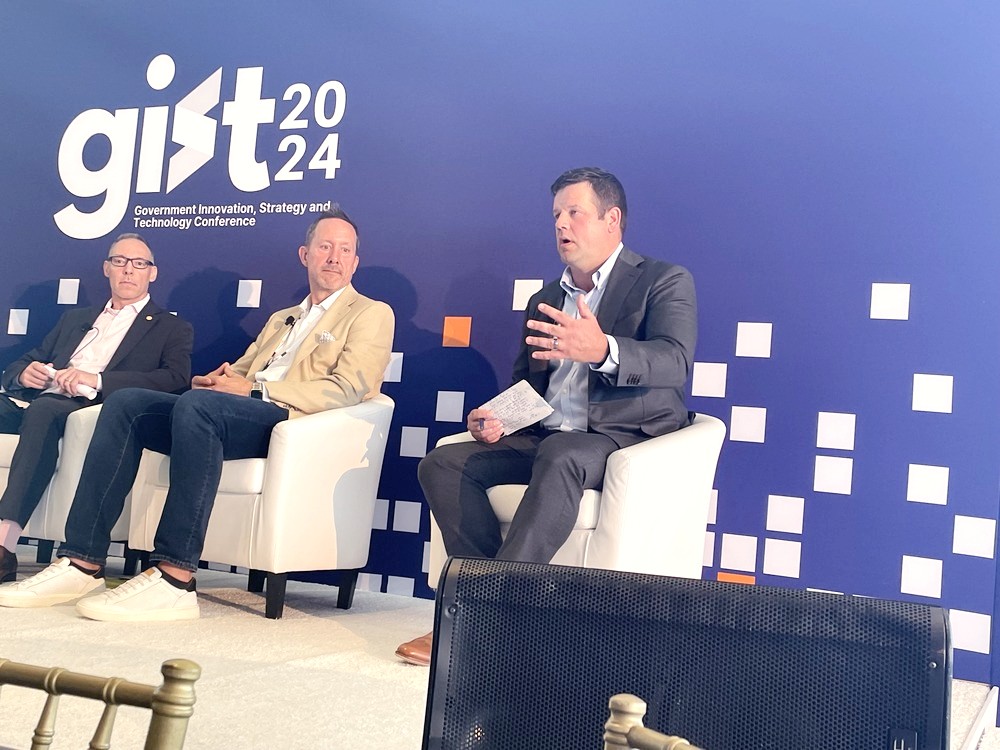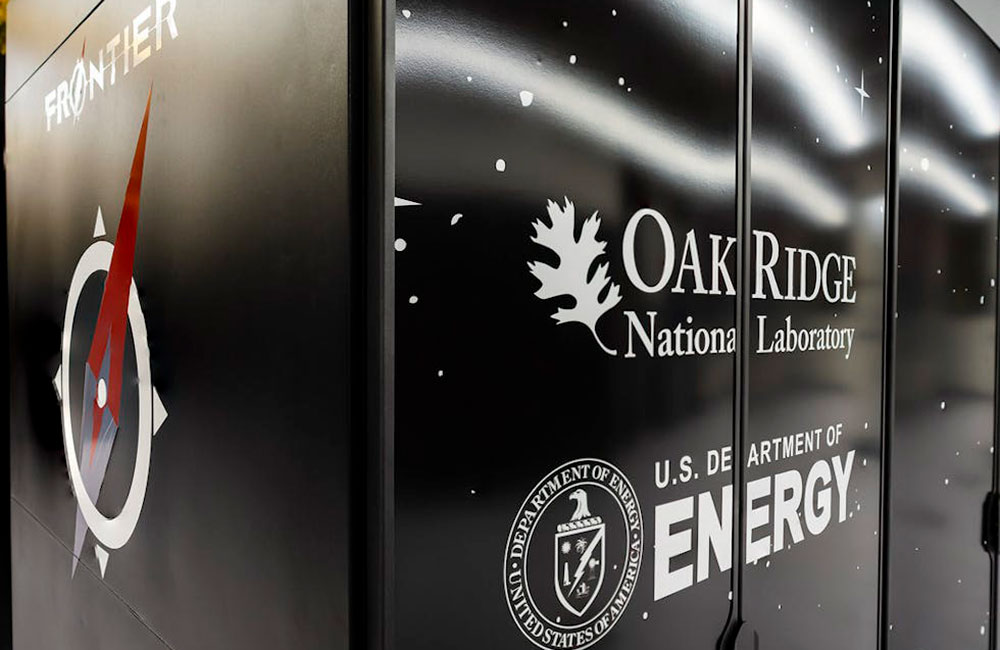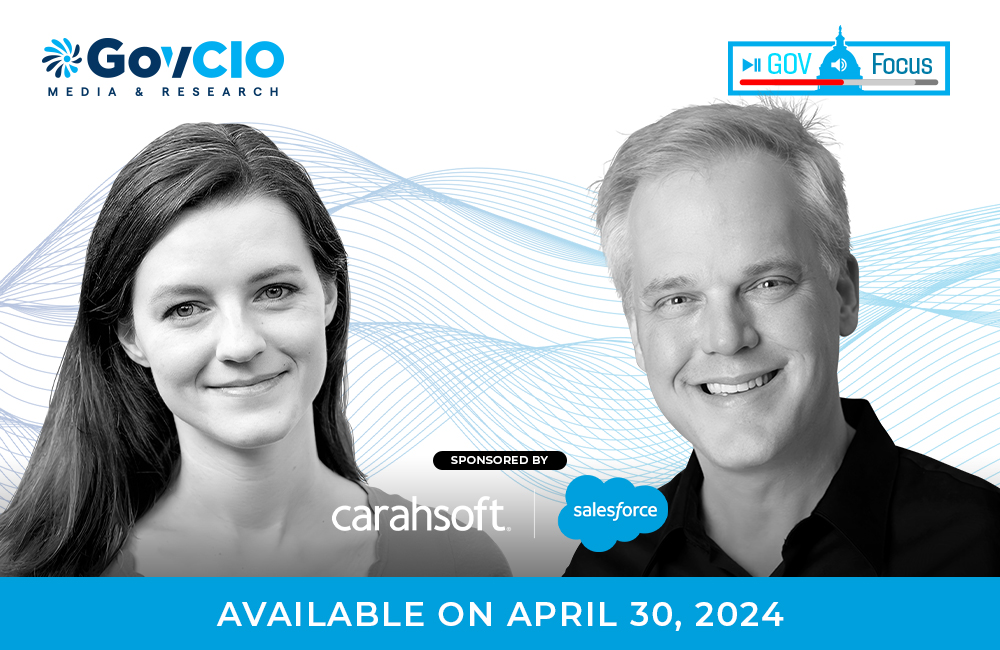CMS is Depending on Data to Drive Health Equity

Advancing health equity is a pillar of the Centers for Medicare & Medicaid Services’ strategic planning, and that plan depends on data. CMS is building on its understanding of disparities in the health care landscape in order to develop effective solutions.
Jeneen Iwugo, deputy director at the Center for Clinical Standards and Quality, said that data analysis is one of CMS’ top priorities.
“There’s a tremendous wealth of data that can be used,” Iwugo said at last month’s AFCEA’s Health IT event. “We’ve looked at area deep deprivation indices and other ways to target racial and ethnic data to support not only quality measurement, but also to make sure that we are targeting our quality improvement efforts in the right area.”
However, CMS is running up against a catch-22 of sorts: many of the underserved areas that CMS aims to assist have limited resources for data submission. Laura Lanford, CTO at the CMS Innovation Center (CMMI), said one of CMS’ major initiatives is to improve data quality and standardization while ensuring accessibility.
“A current challenge is to identify and collect comprehensive race and ethnicity data,” Lanford said. “One of the things that we’re working on at CMMI is reducing the provider burden, which is a critical part of equity, as some providers from underserved populations don’t have the same resources for submitting data. We want to make sure that all of our providers have the opportunity to submit their data for health equity aims.”
Among CMS’ major datasets is the Transformed Medicaid Statistical Information System (T-MSIS), a critical data and systems component of the CMS Medicaid and CHIP Business Information Solution (MACBIS). T-MSIS is designed to capture CMS’ role in the healthcare marketplace to help inform program decisions and improvements.
“T-MSIS is the place where all the Medicaid data for the nation goes,” said Karen Shields, deputy director at the Center for Medicaid and CHIP Services. “It’s also the system that we use to create readable files for researchers and anyone who has a need for the Medicaid data to access. That system holds the health stories for 82 million people, and they are those who are the most vulnerable in our nation, and the ones who are in need of the most care and access.”
Over the past two years CMS has been working to make the T-MSIS data more accessible internally and externally. The CMS is building a Medicaid and CHIP data warehouse and using a data connection system to strengthen the ability to use the data sources. The system is an online application that helps users understand the quality of the dataset they are analyzing and under what circumstances they should rely upon it. Meanwhile, Shields’ department is undergoing a major effort to work with the states to improve data quality.
“CMS has one of the largest and most complicated data sets, and unlike Medicare, Medicaid is not a national program,” Shields said. “It’s a state program. States prioritize the quality of the data that they need within their state to share with their sister agencies whenever they are working on improvement projects, and so making sure that the federal government is top on their IT prioritization list and their data prioritization list is usually something we have to compete for.”
The key to achieving standardized, high-quality data is building strong partnerships and change management practices, Shields said. The Center for Medicaid and CHIP Services is using regulatory and compliance standards to prompt higher-quality data from the states, while also working to make it easier for the states to send data and reducing the time it takes to make the data available for consumption.
“The key to this entire lifecycle is the whole concept of, ‘We’re not good unless they’re good,’” Shields said. “We are marching toward a strategy where we partner with the state and their systems teams and their data teams to get more into the why their data is not consistently healthy. That has a lot to do with change management. … Every time you create a standard, you incubate change management.”
For CMS, there is quite a lot of change on the horizon. Once the public health emergency ends, the CMS will enter a new phase of “unwinding” with the states and territories to redetermine over $82 million from Medicaid and CHIP beneficiaries.
“The increase in financial support that states and territories received during the public health emergency will go away in different phases,” Shields said. “For the first time since the implementation of the Affordable Care Act, all states will be in an operational redetermination mode. … Unwinding is what we meet about all day, it’s what we talk about, it’s what keeps us up at night.”
But this phase of unwinding will also come with new investments from the “Build Back Better” bill and other initiatives.
“The broadening and expansion of home and community-based services, that was a big thing for us before this year,’ Shields said. “It continues to gain momentum both within the agency and within the administration. … The ability for us to expand and support what we believe will be a great infusion of ground workers and home and community-based services in this area, that’s going to be a lift for us in the next couple of years and we’re looking forward to it.”
The pandemic introduced a host of major challenges, but Shields is emboldened by the way that CMS was able to respond to the emergency and how it will continue to build on that momentum to make data-driven advancements in health equity.
“Craziness being a really good incubator of ingenuity,” Shields said. “We are really excited to be able to use the post-health-emergency unwinding period to close that gap so that we can start to actually track people who have coverage in these programs across the program and learn more about them. The whole concept is not to just have a [T-MSIS] data storehouse, but to have a place where stories can be built and told and understood and used to help.”
This is a carousel with manually rotating slides. Use Next and Previous buttons to navigate or jump to a slide with the slide dots
-

How TMF is Helping Agencies Accelerate Tech Modernization
The program launched a new AI pilot to expedite TMF applications as agency leaders urge more to consider applying for funds.
4m read -

Defense Board to Pitch Solutions for Closing Tech Talent Gaps
Defense Innovation Board members cite need to modernize people management the same way government modernizes technology.
4m read -

Energy Researchers Aim For Holistic Approach to AI Issues
A new center at the Oak Ridge National Laboratory is looking at under-researched areas of AI to better understand how to secure it.
2m read -

5 Predictions for AI in Government Technology
Agencies are setting plans in motion not only to integrate AI into their enterprises, but also ensuring the data that power these systems are fair.
41m watch




